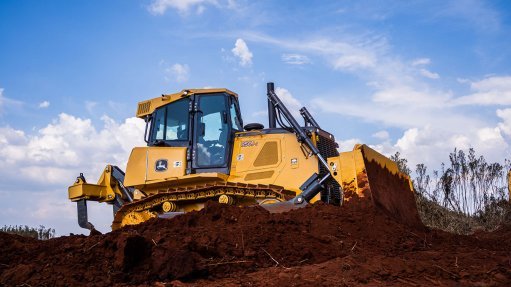Covid: US must learn from us
The predictions were dire. Owing to Africa’s weak health systems – which the continent’s well-heeled elites are known to eschew in the same way one would stay clear of the plague – millions upon millions of its sons and daughters were expected to be consigned to an early grave by the Grim Reaper that is Covid-19.
At the time of writing – about eight months after the pandemic hit our shores – infections across the continent stood at just over 1.8-million and the death toll at about 43 000, according to the Africa Centres for Disease Control and Prevention, the public health agency of the African Union. By contrast, this novel disease had reportedly infected about nine-million people in the mighty US, more than 230 000 of whom had succumbed to it.
Let me put this into perspective: Africa’s population is estimated at 1.3-billion, whereas there were only about 330-million Americans in 2019. So, the Covid-19 toll, in both infections and fatalities, has been disproportionately higher in the US than in African countries – the same countries the uncouth Donald Trump chooses to describe in unprintable terms. But the fellow will be leaving the White House in January, having lost the Presidential race to Joe Biden.
Perhaps Biden will make an effort to emulate the policies and other interventions that African countries have implemented to moderate the impact of Covid-19 instead of insulting Africans at every turn.
Some have attempted to put the relative success of African countries’ response to Covid-19 down to the continent’s youthful population, lower connectivity to the pandemic’s epicentres or differences in lifestyle. I do not buy that. The real reasons include inspirational political leadership. Who will forget how, back in March, President Cyril Ramaphosa rallied South Africans behind him when he declared the country’s initial three-week ‘hard’ lockdown, which included a ban on most international travel. This was quickly replicated in many countries on the continent.
By contrast, the US dithered while the pandemic raged, impacting on both lives and livelihoods. The Trump administration eventually barred the Chinese and the citizens of other countries from entering the US. However, there were no coherent follow-up plans. What’s more, top politicians continue to deny the severity of Covid-19 and some have been shown to disregard physical distancing guidelines. Many huge rallies were hosted in the lead-up to the November 3 election.
As CNN journalists Ahmed Mushfiq Mobarak and Rifaiyat Mahhub observed in a recent piece, another key difference in the response to Covid-19 by African countries and the US has been the extent to which people with the relevant expertise have driven their countries’ response. On the advice of the experts, many African countries expanded Covid-19 testing capacity. Largely, politicians rather than scientists are piloting the US ant-Covid-19 effort.
The CNN journalists also noted that many African countries are using communication strategies that have resulted in changes in norms around the wearing of masks, the sanitising of hands and physical distancing. Perhaps the most creative have been the communication strategies adopted by Rwanda, Senegal and Sierra Leone. In tech-savvy Rwanda, drones attached to loudspeakers are being used to admonish pedestrians for not wearing masks, while, in Senegal, musicians encourage people to stay home and wash their hands frequently. Meanwhile, in Sierra Leone, politicians have made appearances in such musical videos, and community leaders and town criers are deployed to relay health messaging.
African countries’ efforts to curb the spread of Covid-19 have not gone unnoticed. The citizens of Rwanda, for example, can now travel to Europe, while American citizens remain banned. Meanwhile, Senegal’s response has been acknowledged as the second-best in the world after New Zealand’s.
Comments
Announcements
What's On
Subscribe to improve your user experience...
Option 1 (equivalent of R125 a month):
Receive a weekly copy of Creamer Media's Engineering News & Mining Weekly magazine
(print copy for those in South Africa and e-magazine for those outside of South Africa)
Receive daily email newsletters
Access to full search results
Access archive of magazine back copies
Access to Projects in Progress
Access to ONE Research Report of your choice in PDF format
Option 2 (equivalent of R375 a month):
All benefits from Option 1
PLUS
Access to Creamer Media's Research Channel Africa for ALL Research Reports, in PDF format, on various industrial and mining sectors
including Electricity; Water; Energy Transition; Hydrogen; Roads, Rail and Ports; Coal; Gold; Platinum; Battery Metals; etc.
Already a subscriber?
Forgotten your password?
Receive weekly copy of Creamer Media's Engineering News & Mining Weekly magazine (print copy for those in South Africa and e-magazine for those outside of South Africa)
➕
Recieve daily email newsletters
➕
Access to full search results
➕
Access archive of magazine back copies
➕
Access to Projects in Progress
➕
Access to ONE Research Report of your choice in PDF format
RESEARCH CHANNEL AFRICA
R4500 (equivalent of R375 a month)
SUBSCRIBEAll benefits from Option 1
➕
Access to Creamer Media's Research Channel Africa for ALL Research Reports on various industrial and mining sectors, in PDF format, including on:
Electricity
➕
Water
➕
Energy Transition
➕
Hydrogen
➕
Roads, Rail and Ports
➕
Coal
➕
Gold
➕
Platinum
➕
Battery Metals
➕
etc.
Receive all benefits from Option 1 or Option 2 delivered to numerous people at your company
➕
Multiple User names and Passwords for simultaneous log-ins
➕
Intranet integration access to all in your organisation


















